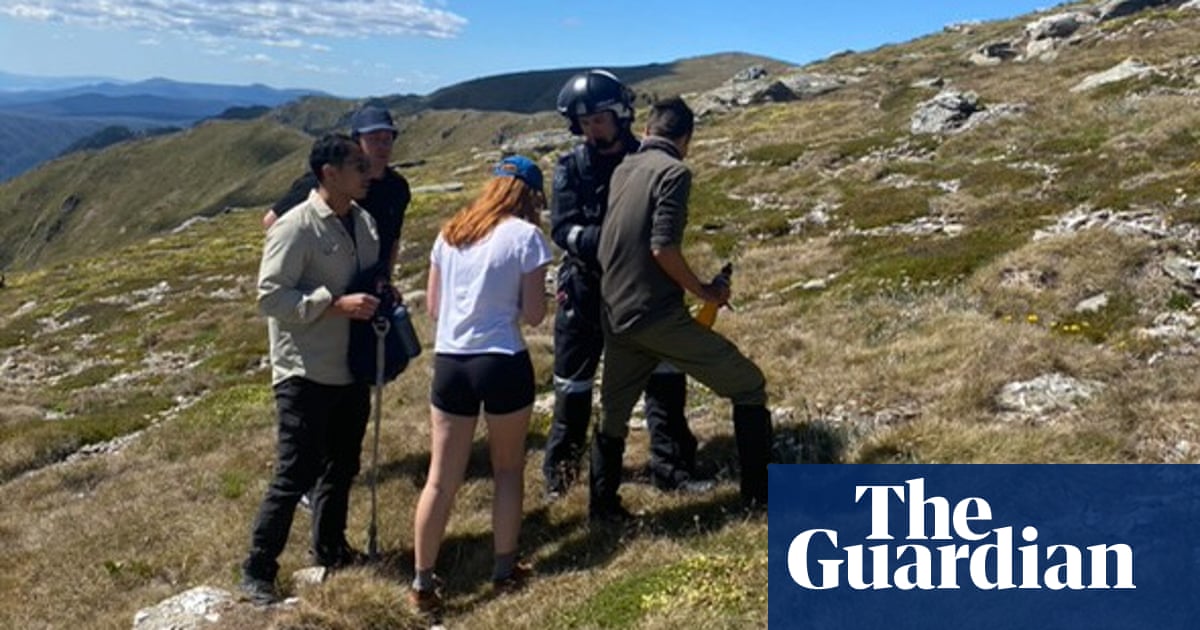The Curious Case of Benjamin Button is very curious indeed. It began as a startling short story by F Scott Fitzgerald: a baby is born as an old man who becomes younger the longer he lives; when he is over 70 he seems to be an infant. Director Jethro Compton, whose exhausting list of credits include not only composing the book and lyrics but creating the design, elaborated the plot and transplanted it from antebellum Baltimore to 20th-century Cornwall. Darren Clark added some lyrics and composed music inspired by Bellowhead, Laura Marling, Kate Rusby and sea shanties.
This folk musical, brought to swarming life by actor-musicians, opened at the small, enterprising Southwark Playhouse Elephant five years ago; now it has landed in the West End – and taken over the Ambassadors. The theatre bar has become the Pickled Crab, and sells seasalt fudge; the walls outside the auditorium are papered with headlines about the Penlee lifeboat disaster and other old Cornish news. More gumboots than glitz. Plenty of welly.
The stage is rarely still or silent. The set, built from salvaged items washed ashore in north Cornwall, is busy with maritime life: wave-worn wood, bright orange buoys, nets slung from on high that catch lights like stars. From time to time in the background there is a tidal roar, the sound of rushing wind. Actor-musicians weave between each other – Chi-San Howard’s choreography is dextrous – whisking around cornet, double bass, french horn, fiddle, ukulele, accordion like playthings; even the cello is bowed without touching the floor.
The dialogue has vivacious touches, not least in the mouth of a genial fisherman who keeps muddling his wise saws: “I could do it with my mouth open.” Still, the story is overcrammed – war, suicide, lost love, the death of a child, rediscovered love, terminal illness – and not always clear. Though John Dagleish is strong and touching in the title role – slowly unbending from his early days as a septuagenarian babe with a walking stick – there is no single knockout song that defines his or others characters. It’s a wave-like movement, a constant musical surge – more jig than gig – that sweeps the evening along. Warmly. Curiously.
This was an extraordinary week for people singlemindedly wrestling shows – not one-people shows, not shows all about themselves – on to the stage. Ché Walker, who in 2008 livened up the Globe no end with The Frontline, has been working on his new play, which he directs and in which he acts, for 14 years. The title is a double clue to the fiery nature of what his characters do and what they feel.
Burnt-Up Love looks at physical and emotional damage travelling down generations; it takes a good swipe at the prison system and at alpha males; it mingles warning and hope. It is a glimpse rather than a full drama, often describing rather than showing its considerable action; but the description is crisp, and the result ferocious.

Walker plays a man who after 20 years of imprisonment dreams of finding his daughter. He lingers, hunched in his overcoat, hovering between threat and blessing: “I am human, but I disappear sometimes.” Joanne Marie Mason is magnetic as the daughter – described as “feral”, called Scratch, subject to sudden affection and engulfing depression: “Staring at some dust in the corner like it was an executioner.” As the woman who becomes her lover, Alice (no relation to Ché) Walker is exact and edgy.
Newly composed music by Uchenna Ngwe and the actor and singer Sheila Atim is used throughout but understated: quiet pings and rumbles point up a scene. Meanwhile, if anyone wanted proof of what lighting can do to make a plot more apparent and the very breath of characters seem different, here it is. The lighting design is by Juliette Demoulin, but the three actors become their own lighting operators. They hold candelabra next to their faces, creating closeups, and put out the flames with snuffers to mark the end of a scene or loss of hope. They send beams from torches; in a moment of dancing gaiety they wave sparklers; in a tense and crucial episode one character continually flicks a Zippo. Demoulin’s stark set design is scarlet and black; close to the action in the tiny space, audience and actors could be sharing a firelit cave or a grate.

It was a candlelit theatre week. It is one of the treats of the jewel-box Sam Wanamaker Playhouse that it is usually lit by stately candelabra, which whoosh down on to the stage like firebirds. But in More… Ghost Stories By Candlelight, a HighTide production directed by Emily Ling Williams, the candles are stumpy, grounded versions you might fumble for in the dark when afraid. The audience is close to the flames that mark out the performance area, leaning in to hear Becky Barry and Sharan Phull deliver four East Anglian tales by different writers.
These are 21st-century tales – one is Covid-inspired. There is a disadvantage to that: ideas about human psychology and fragility undermine sheer spookiness. As does the fleshy energy of the actor-musicians who perform the stories rather than simply telling them. Occasionally strumming on a guitar or drumming on a cardboard box, they offer more charm than alarm.
Ghost stories in the theatre – Susan Hill’s The Woman in Black remains exemplary – need to be fed with creaks and groans and unexplained gusts of wind. The idea of such tales haunting the Sam Wanamaker each year at Halloween is a lovely one – indeed, once thought of, it seems essential. Yet only Eloise Pennycott’s Lover’s Gate, a story of clinging attachment between two teenagers, conjured up a real note of strangeness and sent a delicious shared shiver rippling around the audience. The most simple but effective of tricks: the stage plunged into darkness, then suddenly the face of a vanished woman caught leering close up in candelight.
Star ratings (out of five)
The Curious Case of Benjamin Button ★★★★
Burnt-Up Love ★★★★
More… Ghost Stories By Candelight ★★★
-
The Curious Case of Benjamin Button is at the Ambassadors, London, until 15 February 2025
-
Burnt Up Love is at the Finborough theatre, London, until 23 November

.png) 2 months ago
10
2 months ago
10













































